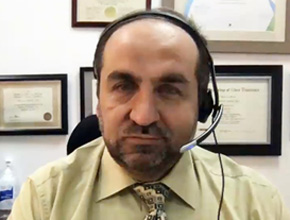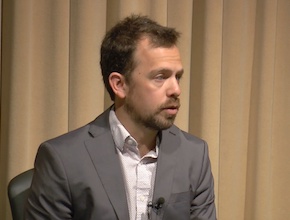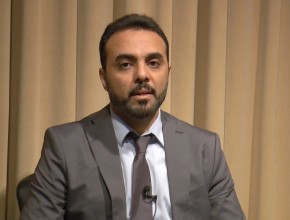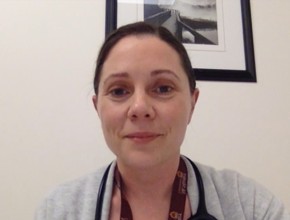Related McMaster Perspective episodes
Rochwerg B, Jaeschke R. Steroids in sepsis. McMaster Textbook of Internal Medicine. Published March 27, 2019.References
Siemieniuk RA, Meade MO, Alonso-Coello P, et al. Corticosteroid Therapy for Patients Hospitalized With Community-Acquired Pneumonia: A Systematic Review and Meta-analysis. Ann Intern Med. 2015 Oct 6;163(7):519-28. doi: 10.7326/M15-0715. Review. PubMed PMID: 26258555.Annane D, Pastores SM, Rochwerg B, et al. Guidelines for the diagnosis and management of critical illness-related corticosteroid insufficiency (CIRCI) in critically ill patients (Part I): Society of Critical Care Medicine (SCCM) and European Society of Intensive Care Medicine (ESICM) 2017. Intensive Care Med. 2017 Dec;43(12):1751-1763. doi: 10.1007/s00134-017-4919-5. Epub 2017 Sep 21. Erratum in: Intensive Care Med. 2018 Feb 23. PubMed PMID: 28940011.
Pastores SM, Annane D, Rochwerg B; Corticosteroid Guideline Task Force of SCCM and ESICM. Guidelines for the diagnosis and management of critical illness-related corticosteroid insufficiency (CIRCI) in critically ill patients (Part II): Society of Critical Care Medicine (SCCM) and European Society of Intensive Care Medicine (ESICM) 2017. Intensive Care Med. 2018 Apr;44(4):474-477. doi: 10.1007/s00134-017-4951-5. Epub 2017 Oct 31. PubMed PMID: 29090327.
Meduri GU, Rochwerg B, Annane D, Pastores SM; Corticosteroid Guideline Task Force of SCCM and ESICM. Methylprednisolone: Likely an Effective Treatment in Acute Respiratory Distress Syndrome. Crit Care Med. 2019 Apr;47(4):e374-e375. doi: 10.1097/CCM.0000000000003572. PubMed PMID: 30882439.
Meduri GU, Rochwerg B, Annane D, Pastores SM; Corticosteroid Guideline Task Force of SCCM and ESICM. Prolonged corticosteroid treatment in acute respiratory distress syndrome: impact on mortality and ventilator-free days. Crit Care. 2018 May 24;22(1):135. doi: 10.1186/s13054-018-2007-z. PubMed PMID: 29793515; PubMed Central PMCID: PMC5968582.
Roman Jaeschke, MD, MSc: Welcome to yet another interview with Doctor Bram Rochwerg, our expert on the use of steroids in critical care. Last time you were talking about the use of steroids in sepsis and it appears that you are in favor of using them, although the recommendation remains weak—as in, nobody should get mad if the patient does not receive this treatment. How about two other areas of interest: community-acquired pneumonia (CAP) and, even more importantly, acute respiratory distress syndrome (ARDS) in the intensive care unit (ICU). Could you comment on those?
Bram Rochwerg, MD, MSc: As part of the same Society of Critical Care Medicine (SCCM) corticosteroid guideline, we made similar conditional, or weak, recommendations for both CAP and ARDS. I think the evidence is quite compelling for both, and probably underappreciated.
In CAP, in the most recent meta-analysis published by colleagues including Reed Siemieniuk in the Annals of Internal Medicine—despite no individual trial demonstrating mortality benefit—a pooled analysis did demonstrate mortality benefit for corticosteroids in CAP. I think this has been slow to translate. We did consider a stronger recommendation as part of the guideline effort; however, without a large-enough and robust evidence base and considering there is still a signal for harms, we ended up deciding that a conditional recommendation was most appropriate. I think even despite the conditional recommendations, corticosteroids are still underused in our CAP population.
Roman Jaeschke: We are talking about severe CAP requiring admission to hospital, right?
Bram Rochwerg: Requiring admission to hospital, but not necessarily limited to patients requiring critical care support.
Roman Jaeschke: But we are not recommending using steroids by family physicians on an out-of-hospital basis.
Bram Rochwerg: That is correct. The majority of the literature almost exclusively looked at hospitalized patients.
Roman Jaeschke: Ok. Let’s move to ARDS.
Bram Rochwerg: Similarly, when you look at the pooled effect estimates, the evidence is quite convincing. There are limitations: a lot of the trials are relatively small, unblinded, single center; they have limitations at an individual trial level. But when you put them together, there is mortality benefit as well as a quite dramatic duration effect in terms of shortening of the length of stay and duration of mechanical ventilation.
Again, as part of the guideline effort, we ended up with a conditional recommendation. The reasons for not being strong here were some of those limitations in the trial designs that I mentioned. However, again, when you look at the overall estimates, they seem like important reductions in outcomes that we think are relevant to patients.
Roman Jaeschke: So which ARDS patients should be treated and when?
Bram Rochwerg: Those are great questions. The trials were relatively heterogeneous in corticosteroids that they used and the duration of therapy. There is this thought that perhaps methylprednisolone has better lung penetration than other agents, so the majority of the trials did use methylprednisolone—I think that would probably be the most reasonable option. However, I am not convinced that you would not see the same benefit with other steroids.
Probably starting earlier rather than later is better. Because of the pathophysiology of ARDS, we think that there is that inflammatory component which progresses to fibrosis. If you are able to capture the alveolitis and the inflammatory component, we think the benefit is greatest, but again, I cannot tell you that we have a great amount of literature to say that if you missed that window—
Roman Jaeschke: What kind of window are we talking about?
Bram Rochwerg: In part of our SCCM guidelines we have said within the first 10 to 14 days. I think that if you can do it within the first week of ARDS, that is probably optimal, but again, that is just based on the pathophysiologic rationale.
Roman Jaeschke: If you had a patient who along the way is growing something in the lungs, has some positive cultures, and we are not sure whether it is a primary or presumably secondary process, would you still use corticosteroid therapy?
Bram Rochwerg: And the patient had ARDS?
Roman Jaeschke: Yes.
Bram Rochwerg: I would. We have benefit in CAP as well as in sepsis. I think the immune suppressive properties of corticosteroids, the potential impact is overwhelmed by the anti-inflammatory effect and quelling the inflammatory response.
I might just mention the one situation where I may consider not giving steroids is viral pneumonia. We saw a signal towards harm in viral pneumonia with corticosteroids.
Roman Jaeschke: When I was preparing for this interview, I read your guidance and we started at least 1 patient with ARDS on steroids yesterday.
Now, to clarify: you would not use steroids in viral pneumonia meaning CAP or viral pneumonia leading to ARDS?
Bram Rochwerg: When it comes to ARDS, it is a bit of a trickier picture. We know that in viral pneumonia—influenzas, respiratory syncytial viruses (RSVs)—there is observational data suggesting harm. Some of this came from the literature on H1N1 as well. With a viral pneumonia I resist or do my best to resist using corticosteroids, given the lack of this [positive] signal. If it progresses to ARDS, I am even more uncertain what to do. I think that is a challenging situation.
Roman Jaeschke: Thank you so much for your insight. We will use you again as our steroid world expert.
Bram Rochwerg: Thanks again for having me. My pleasure.
 English
English
 Español
Español
 українська
українська











